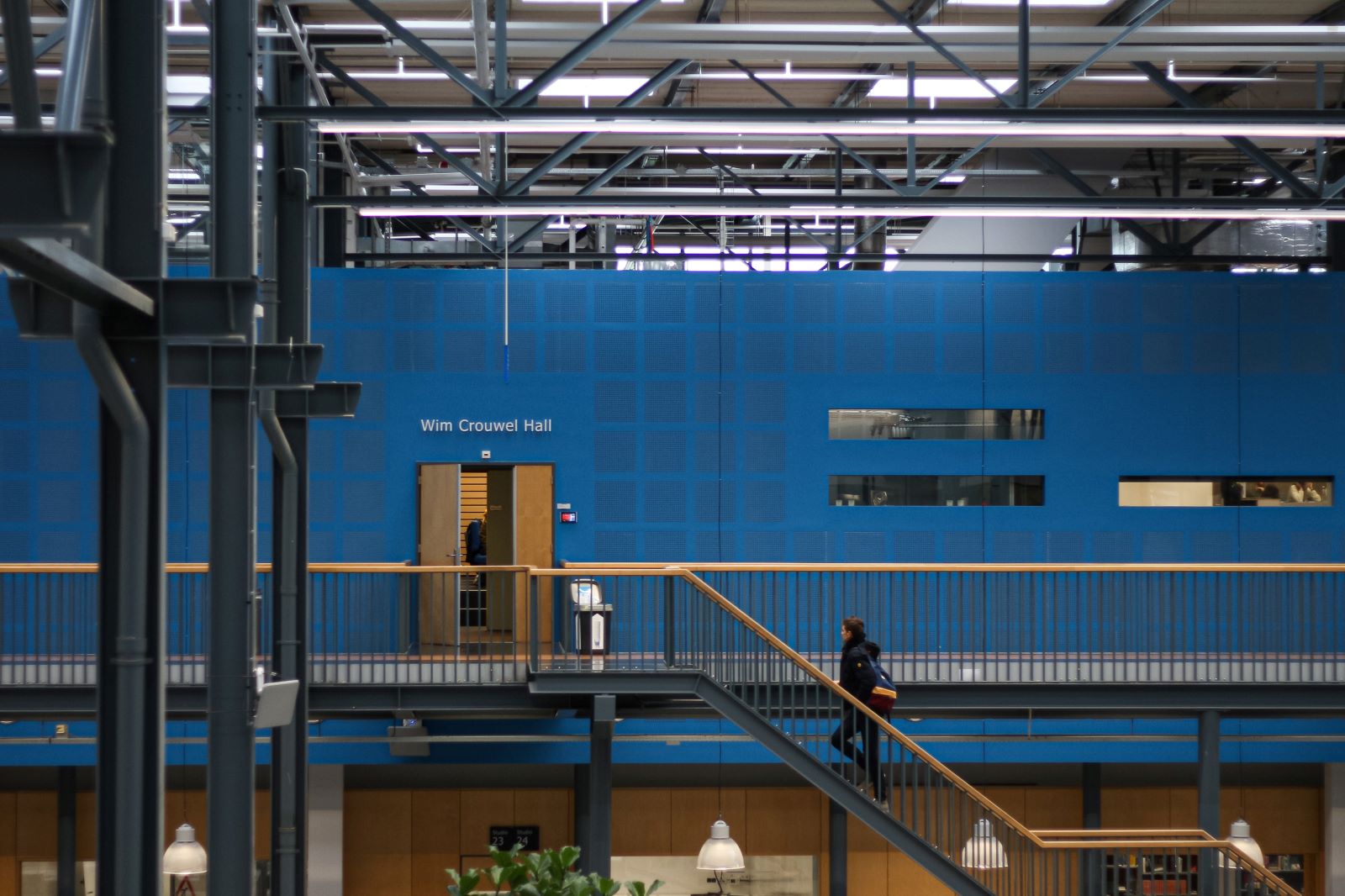Political parties want Minister Dijkgraaf to speed up measures to slow down internationalisation, but he claims that this is not possible.
The hall in the Faculty of Industrial Design Engineering has an English name. (Photo: Justyna Botor)
This emerged at his first budget debate at the House of Representatives.
All sorts of parties, both left and right on the political spectrum, are concerned about the growth in the number of international students. Some universities are unable to handle the numbers anymore and there is not enough accommodation for all the students. The parties wanted to know what the Minister was going to do.
Disappointment
We need to be patient for a little longer, answered the Minister of Education. He will present a vision of internationalisation in February and, before the summer, a toekomstverkenning (a policy statement about the future) for higher education in general. Until then he does not want to discuss it.
Wait a minute, will there not be a draft bill in February, a former Delft Alderman, Hatte van der Woude (VVD political party), wanted to know. The problems associated with the increase in the number of international students are not recent. The House of Representatives has talked about it for years. Why is everything taking so long? They talked about ‘great confusion and disappointment’.
Dijkgraaf appeared surprised. Of course there is not yet a draft bill. You don’t just write one in a couple of months. Moreover, the vision on internationalisation still needs to be clarified. He cannot start writing a bill this before then. Van der Woude was visibly surprised by the interruption microphone. “I will chew it over for the next few minutes and then decide what I will do.”
‘We now have universities where the majority of students are not Dutch’
Pieter Omtzigt, formerly with the CDA political party, thought that the process was going slowly too. “We now have universities where the majority of students are not Dutch,” he said, pointing to Maastricht University. If the Minister only comes up with a vision halfway through his term of office and then still needs to work on a proposed bill, “I will then know that it will be left to the next Cabinet” he said. “This is my fear.”
Calming things down
The SP political party Member of Parliament Peter Kwint had his suspicions too. He believes – and he was not alone – that the institutions should stop recruiting, including in the interests of the international students too. “That the mental health of international students is under pressure is also because some had to camp in a tent on a sports field for most of September. And this is not even a fictional example.”
Nevertheless, Dijkgraaf was still not prepared to say anything about his plans. He tried to calm things down by saying that there is always a law by the previous Cabinet on the back burner – the Wet Taal en Toegankelijkheid (Language and Accessibility Act) that should give higher education the means to restrict the flow. This has already been adopted by the House of Representatives and is now with the Senate. But in previous interviews and debates, he let it be seen that he disagrees with the Act.
Van der Woude wanted to ‘cheerfully’ encourage the Minister to come up with a bill proposal before the summer when the international flow of students would start. She, the CDA and others submitted a motion, which Minister Dijkgraaf dismissed, pointing out his plans. He promised concrete measures such as administrative agreements and legislation. He is also looking at the primary language in degree programmes and the responsibilities of the NVAO (Accreditation Organisation of the Netherlands & Flanders).
HOP, Bas Belleman/Delta
Do you have a question or comment about this article?
redactie@hogeronderwijspersbureau.nl


Comments are closed.